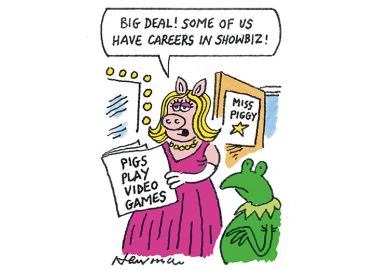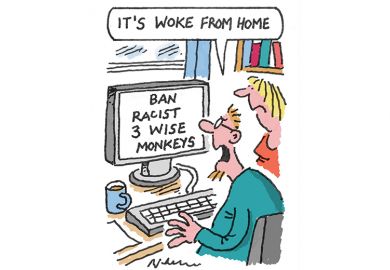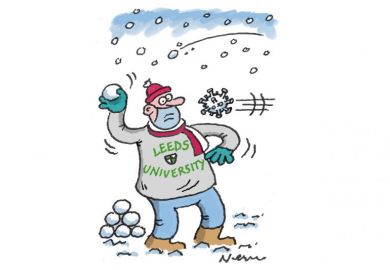
MC Hammer’s U Can’t Touch This has the beat to get even the shyest types on the dance floor but new research suggests it is not just a favourite among the human species; zebrafish also can’t help but bust a move to the R&B classic. Rebecca Poulsen (also known as BeXta), Australia’s first female dance music producer and DJ, has swapped the decks for a PhD in neuroscience at the University of Queensland. As part of her research, which was published in the journal Current Biology, she played sounds and music to baby zebrafish while scanning their brains with a laser, including Hammer’s signature tune, The Guardian reported. “You can see when the vocal goes ‘ohhh-oh’: specific neurons light up and you can see it pulses to the beat. To me it looks like neurons responding to different parts of the music,” she said. It turns out zebrafish don’t need to be told when it’s Hammer time.
Using artificial intelligence to select who is most suitable for a research post may sound like a dystopian nightmare to some academics. But a paper published in the journal Scientometrics argues that it could actually force research managers to be completely transparent about how they select candidates for a role. By comparing CVs in a database of Brazilian researchers, the AI was not only able to filter suitable candidates but learn and define the kind of attributes, such as publication histories or membership of committees, that made them suitable. The paper’s authors say using the method reveals how those doing the hiring selected people: by giving the AI examples of what they considered the “best” CVs, they were “implicitly” agreeing to “what facets in those CVs they consider more important even though it is not clear to them”.
MBAs aren’t the first degrees that spring to mind when thinking of “hands-on” courses and in fact were often taught online pre-pandemic. However, the University of Oxford has decided to reclassify its MBAs as “practical” courses and, by doing so, was able to return to in-person teaching from 8 March, when students at English universities who require practical teaching or specialist equipment were allowed back on campus. The Guardian reported that Oxford’s decision came after it received scores of complaints from students unhappy with having to pay £60,000 for remote learning. An Oxford spokesperson said that the MBA was “an applied programme with substantial practical elements to each module, particularly at this stage of the academic year”, but the University and College Union said that it was “a clear breach of the spirit of government recommendations” and was “income-driven, not educational”.
The University of Leicester was forced to delete a tweet promoting its “game-changing” research, after it was revealed that the academics who conducted the research were at risk of redundancy. On 10 March, the university tweeted a link to a Leicester study on deciphering the genetic material of the desert locust. The research has been hailed as a breakthrough that could lead to the design of pesticides that more specifically or effectively control locusts, which are a massive threat to global food security. However, many people were quick to point out that the researchers who conducted the study were among 145 staff currently at risk of redundancy, with a net reduction of 60 posts planned. In a statement, Leicester said that it “took the decision to delete this tweet to avoid causing upset after comments were made by a small group online”.
One might assume that the main motivation for earth and environmental scientists is to save the planet, but new research suggests that they are more driven by the prospect of being cited by other academics. A survey of more than 2,000 scholars in the field found that citations were seen as a more important form of research impact than contributions to tackling “real world” problems. The study concludes that there is a “misalignment” between scientists’ altruistic desires to help the planet with their work, and the “current realities” of the incentives they faced. “At present, it seems that this laudable ambition of achieving real-world impact is seemingly being lost amidst the realities of being a researcher,” says the paper, currently open for peer review on the F1000Research platform.
Register to continue
Why register?
- Registration is free and only takes a moment
- Once registered, you can read 3 articles a month
- Sign up for our newsletter
Subscribe
Or subscribe for unlimited access to:
- Unlimited access to news, views, insights & reviews
- Digital editions
- Digital access to THE’s university and college rankings analysis
Already registered or a current subscriber?






